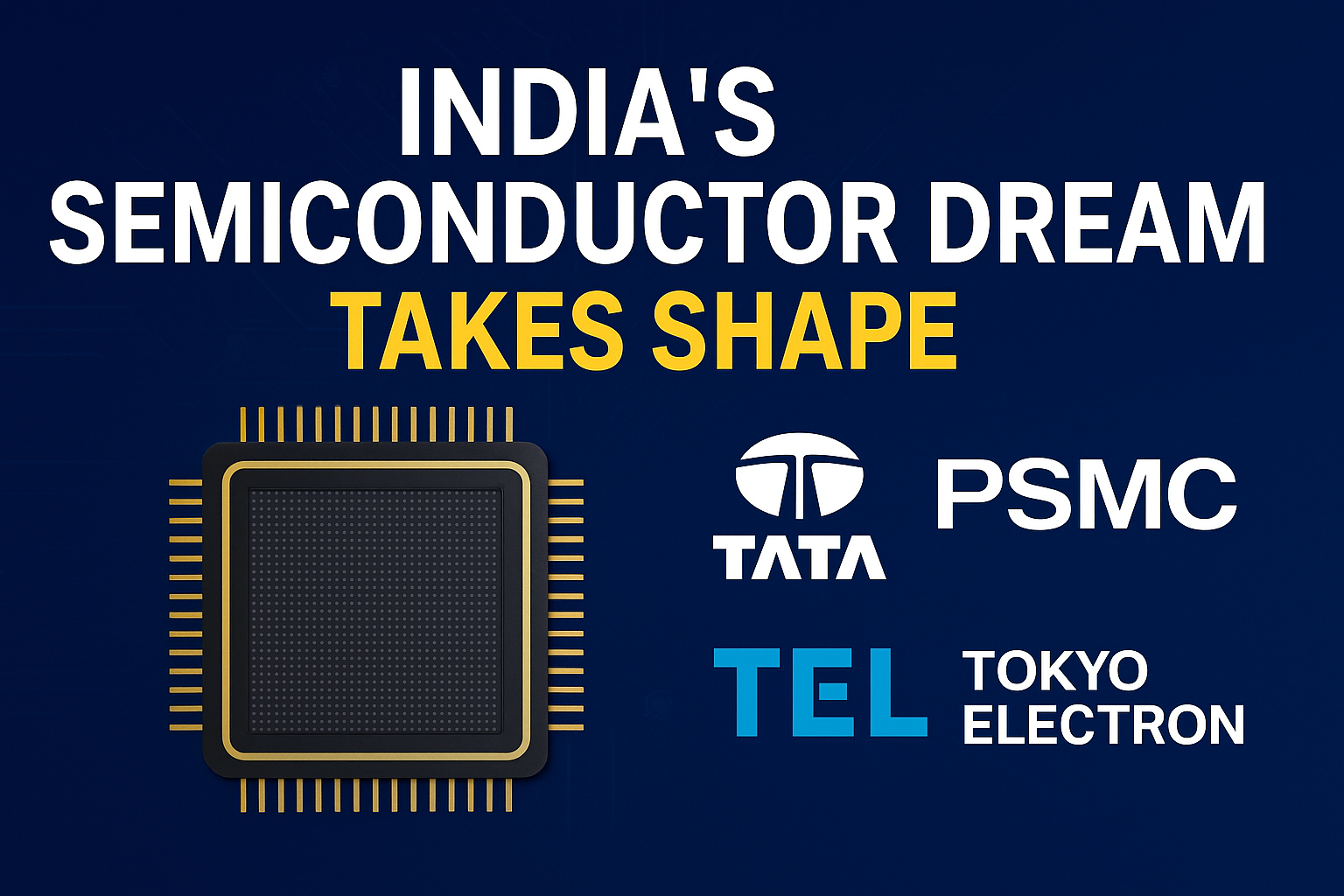India is taking a major leap forward in the global electronics supply chain with its ambitious semiconductor mission. The government’s vision to position India as a leading hub for chip manufacturing is now gaining momentum as Tata Electronics, Taiwan’s Powerchip Semiconductor Manufacturing Corporation (PSMC), and Japan’s Tokyo Electron join hands to build state-of-the-art fabs and supply chain networks. This collaboration is expected to lay the foundation for India’s semiconductor dream.

Tata Electronics Leading the Charge
Contents
At the heart of this initiative is Tata Electronics, which has been aggressively expanding into high-tech manufacturing. The company’s entry into semiconductor fabrication marks a turning point for India, as it provides both the financial strength and operational expertise required for such a capital-intensive sector. With government incentives and Tata’s reputation for building large-scale industries, the groundwork for India’s semiconductor fabs is stronger than ever.
PSMC Bringing Global Expertise
PSMC, a leading Taiwanese foundry, is playing a crucial role by bringing decades of experience in chip fabrication technology. With expertise in advanced process nodes and a robust portfolio of integrated circuit (IC) production, PSMC’s partnership ensures that India does not have to start from scratch. Instead, India can leverage proven global practices to establish competitive manufacturing units that meet international quality standards.
Tokyo Electron Powering the Supply Chain
In addition to fabrication, Tokyo Electron, one of the world’s largest semiconductor equipment suppliers, is entering the Indian market to provide cutting-edge machinery and tools. From lithography to etching, Tokyo Electron’s technology will empower India’s fabs to operate at global efficiency levels. This ensures that India not only manufactures chips but also builds a reliable ecosystem of semiconductor equipment and supply chains.
Strengthening India’s Semiconductor Ecosystem
The collaboration between Tata, PSMC, and Tokyo Electron goes beyond just building factories. It focuses on creating a holistic semiconductor ecosystem in India—including design, research and development, testing, and packaging. This end-to-end approach will help reduce dependency on imports, enhance supply chain resilience, and establish India as a competitive hub for semiconductor manufacturing in Asia.
Boost for Electronics and Emerging Technologies
A strong semiconductor base is critical for India’s growth in electronics manufacturing, 5G networks, artificial intelligence, and electric vehicles. By producing chips domestically, India can reduce its reliance on imports from Taiwan, South Korea, and China. This will not only strengthen India’s economic security but also fuel innovation across sectors such as smartphones, data centers, cloud computing, and defense technologies.
Government Support Driving Growth
The Indian government has already rolled out a semiconductor incentive scheme worth billions of dollars to attract global players. Land, subsidies, and policy reforms are being fast-tracked to make India an attractive investment destination. With Tata, PSMC, and Tokyo Electron taking the lead, more global players are expected to follow, further accelerating India’s semiconductor journey.
The Road Ahead for India’s Semiconductor Dream
While challenges such as high capital requirements, talent shortages, and supply chain complexities remain, the entry of global leaders marks a turning point. By 2030, India aims to be a strong player in the semiconductor and electronics supply chain, generating thousands of high-skilled jobs and reducing dependency on global imports. The Tata-PSMC-Tokyo Electron partnership is the first big step in turning India’s semiconductor dream into reality.

